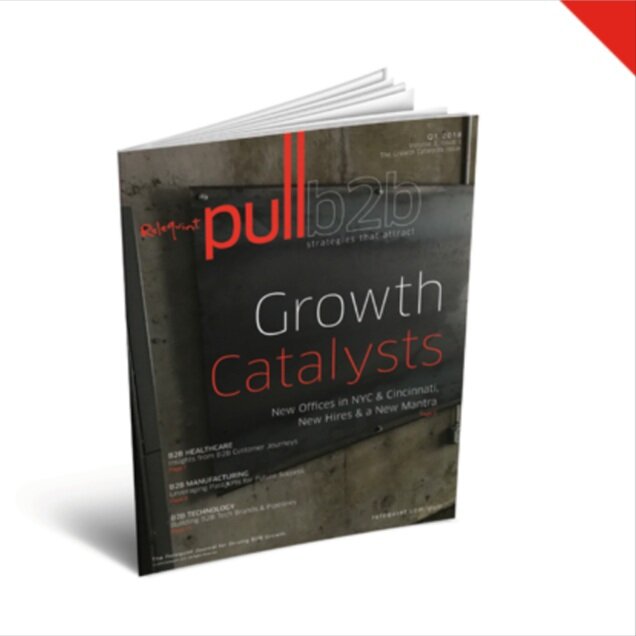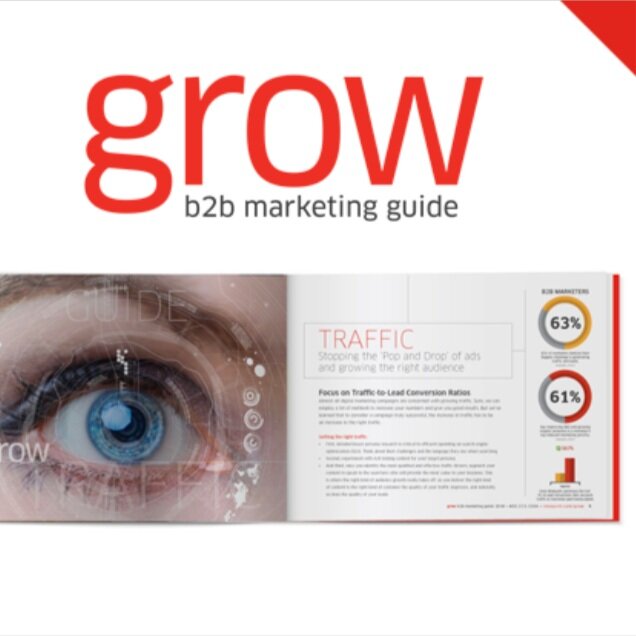Sales enablement is a new phrase, but the concept behind it has been around about as long as B2B business has. At its essence, it simply means doing whatever is necessary to put your sales department in a position to succeed. In B2B, sales is often king and many companies have been practicing sales enablement without labelling it in so many words.
The practical points of adopting and implementing sales enablement in this modern age is where it gets a little more complex. With the onset of inbound marketing and data-driven analytics, it extends beyond enhancing sales by improving the sales department. Now, it involves bringing the marketing department in to craft content—also known as collateral—mapped to the sales process and targeted at the prospects best-suited for conversion.
 For B2B companies using inbound methods, sales enablement is about directing the flow of processes and activities in all departments to bolster the efforts of your salespeople. The goal for everyone in the company is strengthening and support your company’s role in the buyer’s journey from lead to prospect to sale to loyal customer.
For B2B companies using inbound methods, sales enablement is about directing the flow of processes and activities in all departments to bolster the efforts of your salespeople. The goal for everyone in the company is strengthening and support your company’s role in the buyer’s journey from lead to prospect to sale to loyal customer.
Though the broad definition of sales enablement is obvious, applying it to your B2B operations will have subtle differences based on how your sales department, marketing, and operations are structured. Accomplishing that means mapping these two core elements of sales enablement to how you reach out to buyers.

SUPPORT AND GUIDANCE
When the sales department comes into play in the latter stages of the buyer’s journey, they need the right information to effectively close the deal. That means a dossier needs to exist for each qualified lead they take charge of with a thorough enumeration of that buyer’s pain points, needs, and preferences for each decision maker involved.
That knowledge comes from two things, the efforts of marketing which have taken place earlier in the sales process and the training your salespeople receive on maximizing the content marketing produces. The former shines more light on what leads are looking for by gauging their responses to inbound content and the latter informs your people about what they can do with that information and how to apply it to sales conversations.
Having a unified platform for sharing this information—in the form of customer relationship management software—is crucial. This base of knowledge should be easy to access and easy to update as leads reveal more about themselves. The more specific, timely, and detailed that information is, the better sales is equipped to talk to a decision-stage lead on their terms.
INTERDEPARTMENTAL AWARENESS
Marketing and sales cannot operate in their own separate bubbles. Like we’ve said, sales enablement isn’t just about the sales department. Despite the separation that the natural delineation of your operations may imply, modern B2B sales are a company-wide effort that requires collaboration and alignment among every key player in your organization.
The support outlined in the previous point is just one facet, as it is also not a one-way street of marketing handing information off to sales when a lead enters the decision stage. Sales also needs to inform marketing of what is lacking on either end. Do they have not just enough information, but the right information? Are both parties aware of the proper timing for handing leads off to sales to finish the job? Is marketing putting out content that compliments sales conversations well or is sales noticing a disconnect between the two?
Having departments meet and talk about what is and isn’t working is key. This refines your efforts through using both parties’ observations. In turn, you gain greater agility when having to change strategy. It’s vital that one department is aware of what the other is seeing in the process so that their efforts and the message that buyers receive are unified.
Sales enablement is an ROI booster because it cuts down on wasted or redundant efforts by both the sales and marketing departments. With greater knowledge shared between the two, the process becomes more focused, efficient, and effective at converting leads. B2B buyers want to be informed by sellers like you in order to be confident in their purchasing decision.
That confidence comes from your sales department being enabled by your marketing efforts to speak to them specifically about their needs. When a buyer knows your company is paying attention to what they’re saying, a level of trust is built that greatly improves conversion rates and customer retention. B2B sales enablement is simply setting up your company for sustained success and growth. ![]()







 By
By 